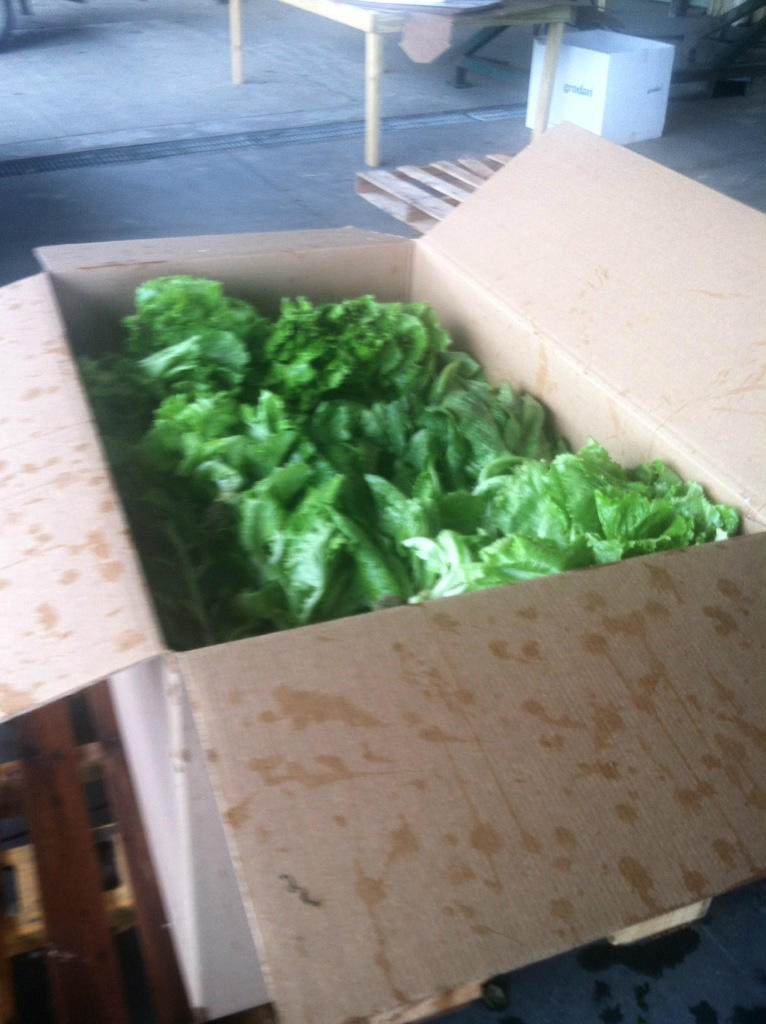During the height of the growing season, many Georgia farmers find themselves with one truckload too many of tomatoes or peppers.
Sometimes that food is given away to friends and sometimes it’s sold at a deep discount, but other times it’s just tossed into a compost bin.
Feeding America, the nation’s leading domestic hunger charity, has partnered with Georgia MarketMaker, Georgia farmers, the Georgia Food Bank Association and the University of Georgia Center for Agribusiness and Economic Development to tap this potentially wasted food supply.
This coalition is currently recruiting Georgia farmers for a Farm to Food Bank pilot program that will connect them to local food banks via technology, such as a web portal or smart phone app. Food banks will be able to use the technology to facilitate communication with local food banks that can use their excess produce.
“By using the connections in the MarketMaker system and developing new technology to streamline the process, we hope to make donating much easier for Georgia producers,” said Sharon P. Kane, an economist with UGA’s Center for Agribusiness and Economic Development.
While food banks have long been a reliable source of shelf-stable staples and canned goods for families in need, it has always been a challenge to provide families with fresh fruits and vegetables, said Danah Craft, executive director of the Georgia Food Bank Association.
The Farm to Food Bank program will fill that need for food banks and their clients, she said. For farmers it will help them quantify the amount of food they have donated and its value.
Donating through the Farm to Food Bank program also streamlines the donation process, said Phil Jennings IV, co-owner of Nature Crisp vegetable farm in Soperton.
“I called them and let them know what we had, and they arranged a time to pick it up,” Jennings said.
Jennings and his father, farm co-owner Phillip Jennings III, signed up to be part of the Farm to Food Bank program in mid-January at the Southeastern Fruit and Vegetable Growers Conference in Savannah. They made their first donation, of 300 heads of lettuce, to America’s Second Harvest of Coastal Georgia, a Savannah-based Food Bank.
Nature Crisp’s donation was the first made since the Farm to Food Bank pilot kicked off a few weeks ago.
Nature Crisp grows specialty vegetables for restaurants in Savannah and other areas of the Southeast. Most of what they grow needs to be eaten within a few days of being harvested to be at its best, and there are always perfectly good vegetables that end up going to waste, Jennings said.
“When we had excess produce, we would usually give it to friends and employees for their families, feed it to livestock, or simply throw it away,” Jennings said. “My father and I had talked about finding a place to donate the extra food we had on hand, and it was that same week when we were told about the program down in Savannah. Of course we loved the concept and jumped onboard.”
Feeding America chose Georgia for this pilot program because of the state’s growing season and its existing network of food banks and networks of farmers.
“We were chosen because we have a long growing season and there is a state association of food banks already in place here,” Craft said. “It was the combination of those two elements that led them to choose Georgia, along with the really strong agricultural community here.”
Georgia’s seven large regional food banks are networked through the Georgia Food Bank Association. Each regional food bank distributes groceries to dozens of small independent food pantries or agencies that serve their local communities.
Both large and small vegetable producers who believe they’ll have even a little excess produce to donate during the spring of 2013 are participating in the pilot. Farmers will provide feedback about how the technology and the Farm to Food Bank program is working.
About the sponsors
University of Georgia Center for Agribusiness and Economic Development has economists and business specialists with skills and knowledge to add value to Georgia’s agricultural economy and help individuals succeed in agribusiness. The CAED provides timely assistance to producers and entrepreneurs in researching and implementing their ideas.
Officially formed in 1985, the Georgia Food Bank Association (GFBA) is currently comprised of seven regional food banks, which collectively distribute more than 90 million pounds of food annually to over 2,300 partner nonprofits with food assistance programs in all 159 counties throughout the state.
MarketMaker is a national partnership of land grant institutions and State Departments of Agriculture dedicated to the development of a comprehensive interactive database of food industry marketing and business data. It is currently one of the most extensive collections of searchable food industry related data in the country. All the information can be mapped and queried by the user.
With a network of 200 member food banks across the country, Feeding America supplies more the 3 billion pounds of food and grocery products annually. Feeding America is the nation’s leading domestic hunger-relief charity. Our mission is to feed America’s hungry through a nationwide network of member food banks and engage our country in the fight to end hunger.




